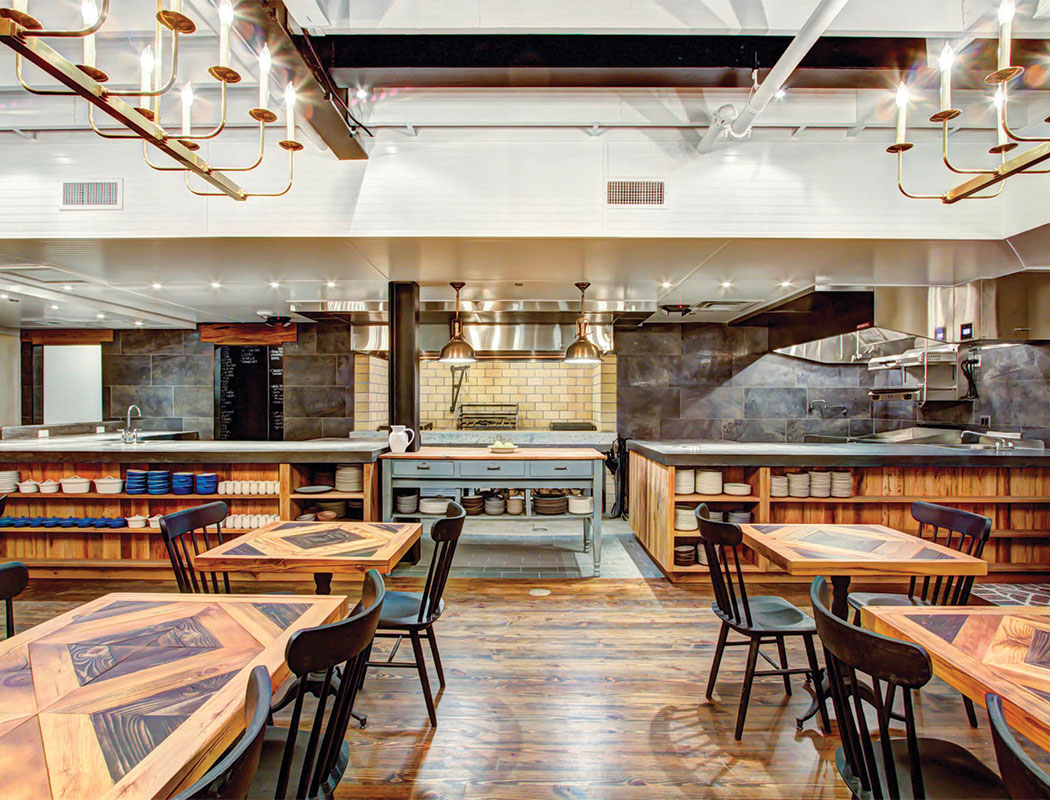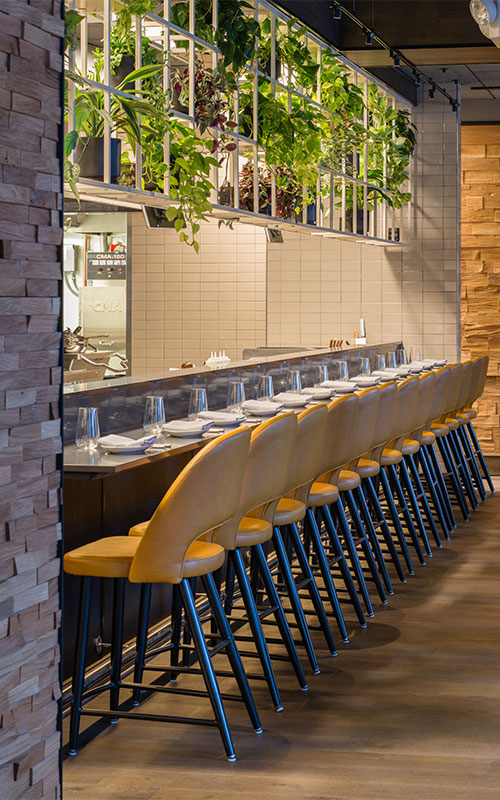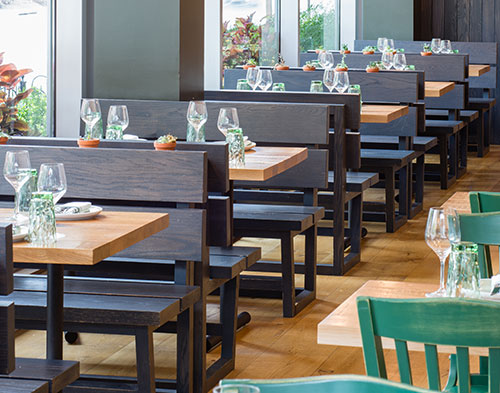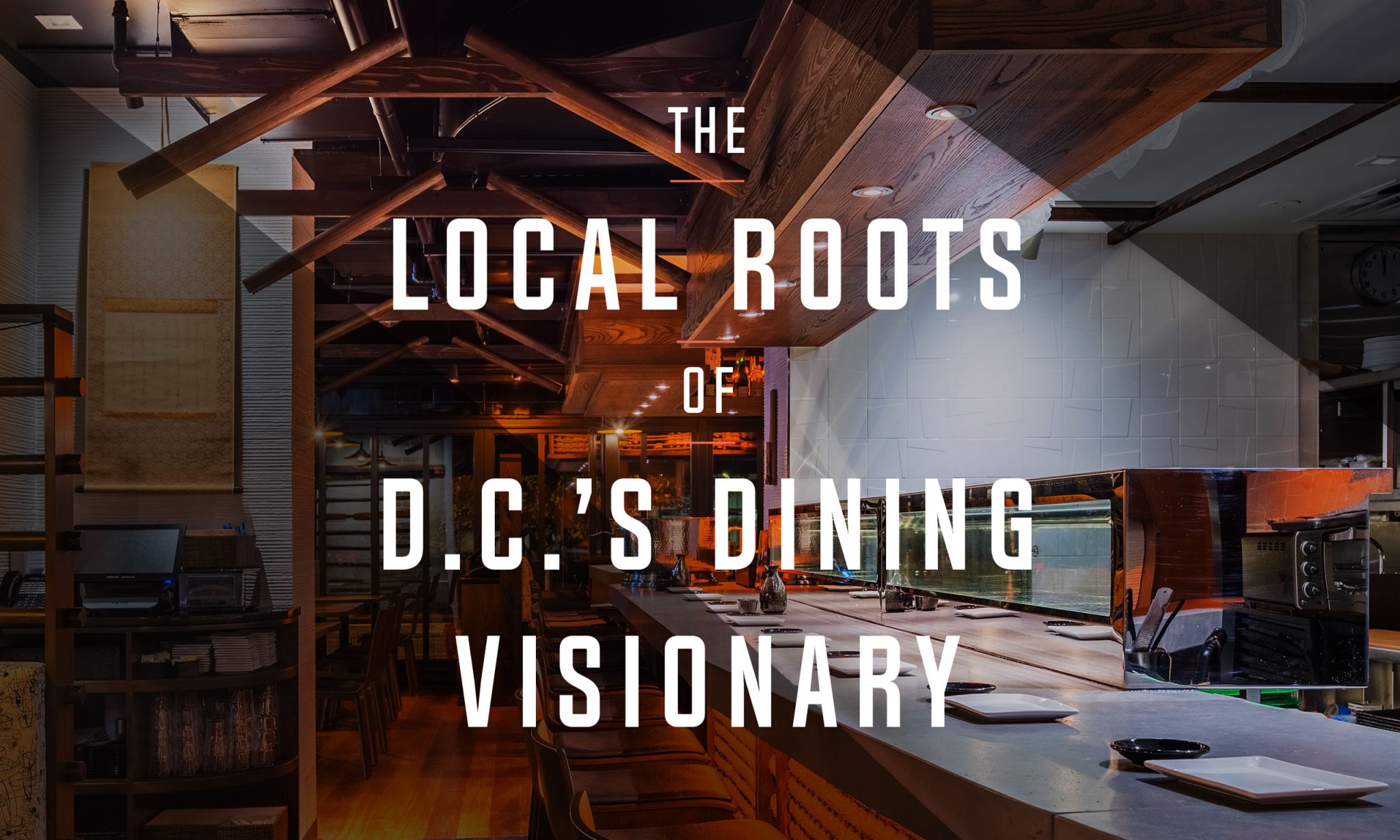
By Lenora Dannelke
MEET THE ALLENTOWN NATIVE WHO’S BUILDING THE TRENDIEST RESTAURANTS IN OUR NATION’S CAPITAL.
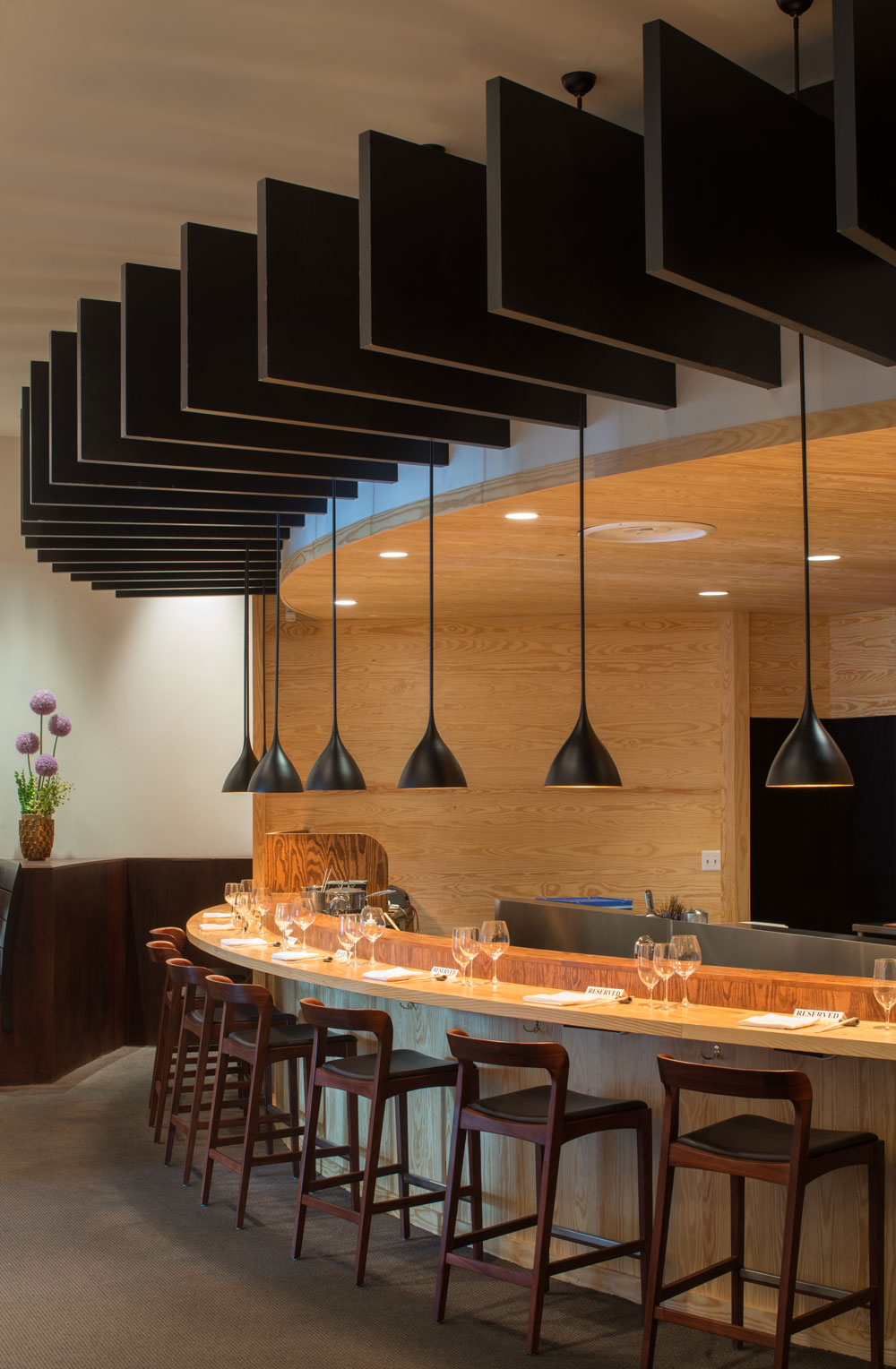
SUSHIKO
WASHINGTON D.C.
There are few things Rob Mescolotto enjoys more than taking a hammer to hospitality—and Washington D.C. benefits from his passion for building restaurants. Hospitality Construction Services, Inc., the general contracting company he founded in 2013 and now operates with business partner Shawn Johnston, is responsible for creating many of the city’s most lauded dining spots, including several Michelin-star venues. In the highly specialized and demanding field of restaurant construction, this young firm handily earns kudos for outstanding results.
While his profession immerses him in the heady world of famous restaurateurs, acclaimed chefs, and cutting-edge cuisine, Mescolotto retains a down-to-earth appreciation of food rooted in his native Lehigh Valley upbringing, starting with a humble hot dog cherished during childhood. “I’m not going to lie: Yocco’s was great. Everybody loves Yocco’s,” he says. “My mom cooked dinner every night except for Friday; that was our night out. We’d go to Louie’s, have dinner with the Belletieris, and it was a family event.”
In fact, the Mescolotto family’s relationship was forged around the table. “Mom would cook breakfast every morning, and when dad came home from work, it was time to eat dinner. In true Italian tradition, we sat down to every meal together. Mom’s an amazing cook—I think she’s the best chef in Allentown, but every good son would say that.”
The family’s extensive world travels, including trips to Scotland, England, France, Italy, and the Bahamas, broadened Mescolotto’s gastronomic horizons. “We tried new foods everywhere we went. My dad had a passion for French food. When I was around four, he gave me an escargot—without telling me what it was. And I thought, hey, that’s delicious!” Even a trip to Philly’s opulent Le Bec Fin, notable because a jacket and tie were required attire, exposed him to high-end dining while providing a first taste of steak tartare.
I love food.
If I could eat in my
sleep I would.
I love cooking
and I love other
people’s cooking.
Rob Mescolotto

After Mescolotto left Allentown to attend Penn State, where he would earn a degree in Civil Engineering with a dual focus on construction management and reinforced concrete, he returned home for a summer job at Monarch Precast Concrete Corp. “I learned there is no clean job in the concrete industry: You’re either covered in concrete or you’re covered in oil,” he says. “It was a very hard but very fun experience, and I met a lot of great people because of it.”
Ending up in restaurant construction was “a complete accident, to be honest,” Mescolotto reports. A post-graduation excavation job had him traveling extensively across western Pennsylvania and northern Maryland until he put on the brakes and settled in Frederick. Through employment with a major contractor, he gained experience in construction management and finally went in an independent direction, doing projects in several prestigious spaces in D.C. A successful restaurant job for a well-known architect—who hired Mescolotto and his then-business partner essentially on a leap of faith—provided an inside track to this contracting niche. “He starts telling everyone in town about us and suddenly we had work coming out of our ears. The industry is very tight and small—it’s like a Ferrari Club. If they find something good, they want to share it just with their internal circle of friends. And that helps you get business. It’s pretty wild.”
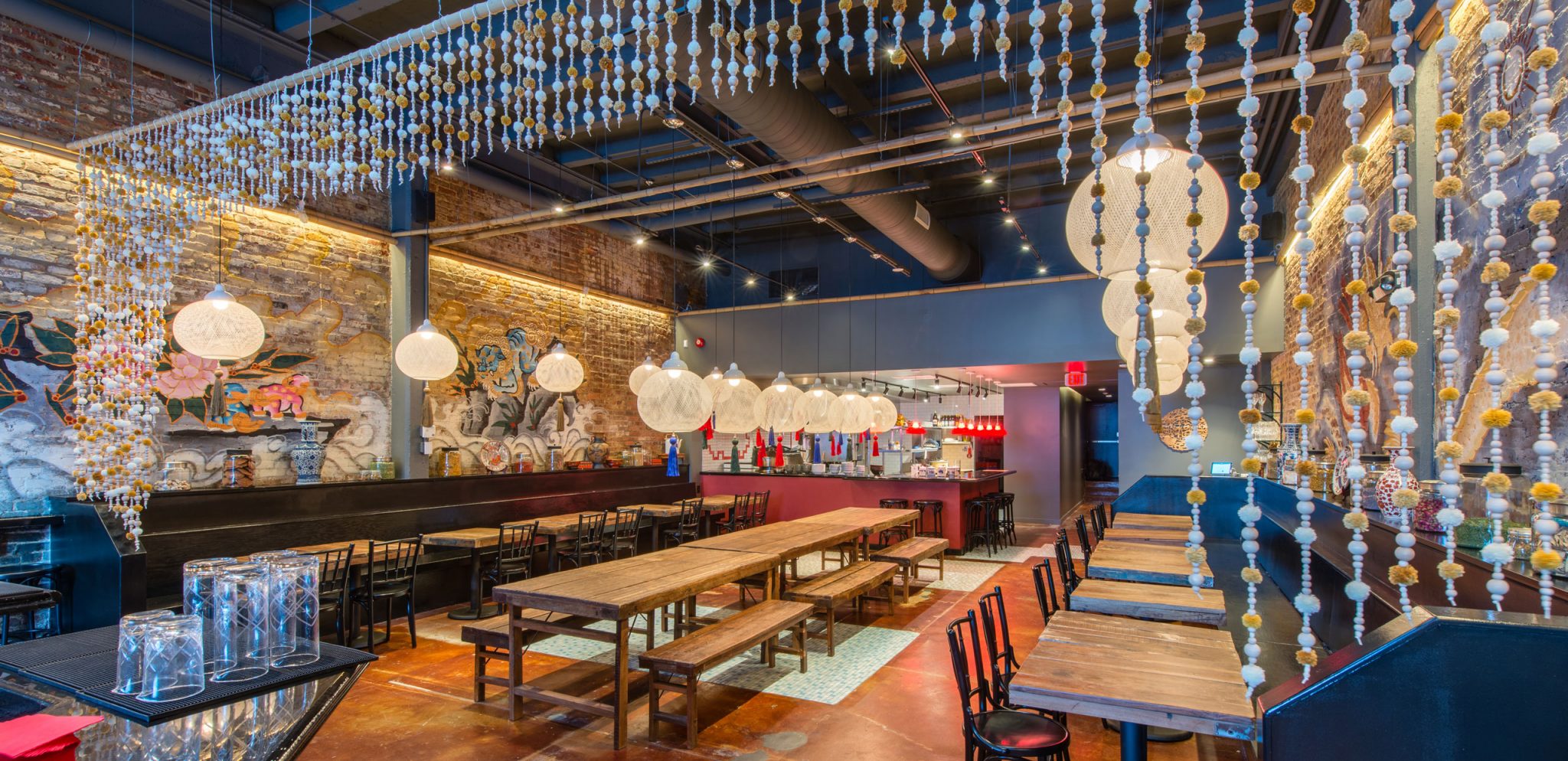
TIGER FORK
WASHINGTON D.C.
As a business owner, Mescolotto is “willing to pick up a shovel” or do whatever it takes to get a job done properly. “When you get down to it, I’m the chief bottle washer.” One thing he does object to, though, is being called a general contractor. “I think that’s the worst term. I explain to owners that when you get our price, we go out and get subcontractor quotes for everything, then we add our management costs, and a fee, which is our profit for doing a job—you see all the numbers. We tell people the truth: We’re the construction arm of your business and we work for you. We’ll fight with the subs, the architect, or even you if you’re making bad decisions—as an employee should.”
Knowing the intricacies of restaurant builds—and Mescolotto has some 170 to his credit—offers a distinct advantage to clients, especially when it comes to specific styles of cuisine. For example, a French format kitchen has a more formal, orchestrated flow of cooking progression. “In a tapas restaurant, things are going in every direction as they go to the pass because it’s not a coursed meal. Knowing how little things work for the chef makes a huge difference. And we also know how bartenders operate.” (A common flaw in bar design puts right-handed bartenders—who are in the majority—at a disadvantage. That gets corrected.)
The costs of building a restaurant can be formidable—Mescolotto compares it to constructing a home that contains only the most expensive components: a kitchen, baths, and a finely decorated dining room—but knowing how to tame expenses has secured his firm “a reputation of being a Class A builder.” Every design element, every piece of equipment, and all the furnishings are examined and evaluated for cost-effectiveness—as well as function and durability. Aggressive management of every step and finding creative solutions to challenges keep projects on time and under budget, all the while maintaining the client’s unique vision. In the industry, this practice is known as value engineering.
Knowing how and where to make smart choices that maintain design integrity can result in huge savings, such as the time Mescolotto found an attractive and fully acceptable alternative to heart pine, a rare old-growth wood specified by an architect, that saved the client $80,000. Appliances and other kitchen equipment represent another vital area of price scrutiny. “Anything with a French name is more expensive,” Mescolotto comments.
BIM (Building Information Modeling), a detailed digital representation of a project created by the architect, is an actionable tool for Mescolotto. “If an owner says the price is too much, say $1 million, and I can make the finished restaurant look just like the picture for $750,000, then I’ve done my job.”
As a personal favorite restaurant that he built, Mescolotto points to Chloe, which is owned and operated by his friend, Chef Haider Karoum, well known on the D.C. dining scene. The two men became acquainted when Mescolotto worked on previous successful ventures where Karoum served as executive chef. His transition from employee to restaurateur was eased by the expertise of Mescolotto, who put his “heart and soul” into the Navy Yard’s eatery that boasts a cool contemporary style while retaining a warm earthiness—and dishes up a diverse menu of globally inspired cuisine. “The restaurant opened up [in January 2018] and the food is phenomenal. He’s doing so well he’s looking to build another restaurant.”
Over the years, having had a hand in more restaurants with Michelin stars than probably any other builder in D.C., Mescolotto is especially proud that Hospitality Construction Services is responsible for such winners as Tail Up Goat, with a breezy Virgin Islands vibe and a floating wood canopy ceiling, and The Dabney, which captures an authentic rustic atmosphere inside and out. A vast hearth is used to cook many dishes on the traditional mid-Atlantic fare menu.
And this builder never loses his enthusiasm for upcoming projects. “Restaurants are the only place, aside from amusement parks, where they can be everything and anything,” he says, noting that by comparison, offices or homes are pretty straightforward. “Restaurants are such a personal expression, both the outside and the food. We get to play with materials that nobody gets to play with—they’re reserved for the most insane projects. It’s really cool.”
However, above all, Mescolotto maintains a passion for food. “I love food. If I could eat in my sleep I would. I love cooking and I love other people’s cooking. It’s both nourishing and beautiful. You can’t eat a Monet, but some of these plates are so elaborate and decorated and beautiful. And by the same token, something as simple and wonderful as a chili dog can be so satisfying to your soul. It brings back a memory. That’s what makes a meal great.”
When visiting his parents who still reside in Allentown, Mescolotto always prefers to eat his mom’s home cooking. But if she gets a night off, a favorite local place to visit is Henry’s Salt of the Sea. “They have a great plate of food. Every meal is coursed properly. And Joyce is the most awesome waitress in the universe. [Chef Brian Krans’s] food is so rich and filling, it’s so good. That menu is solid.” And that is the voice of restaurant experience speaking.
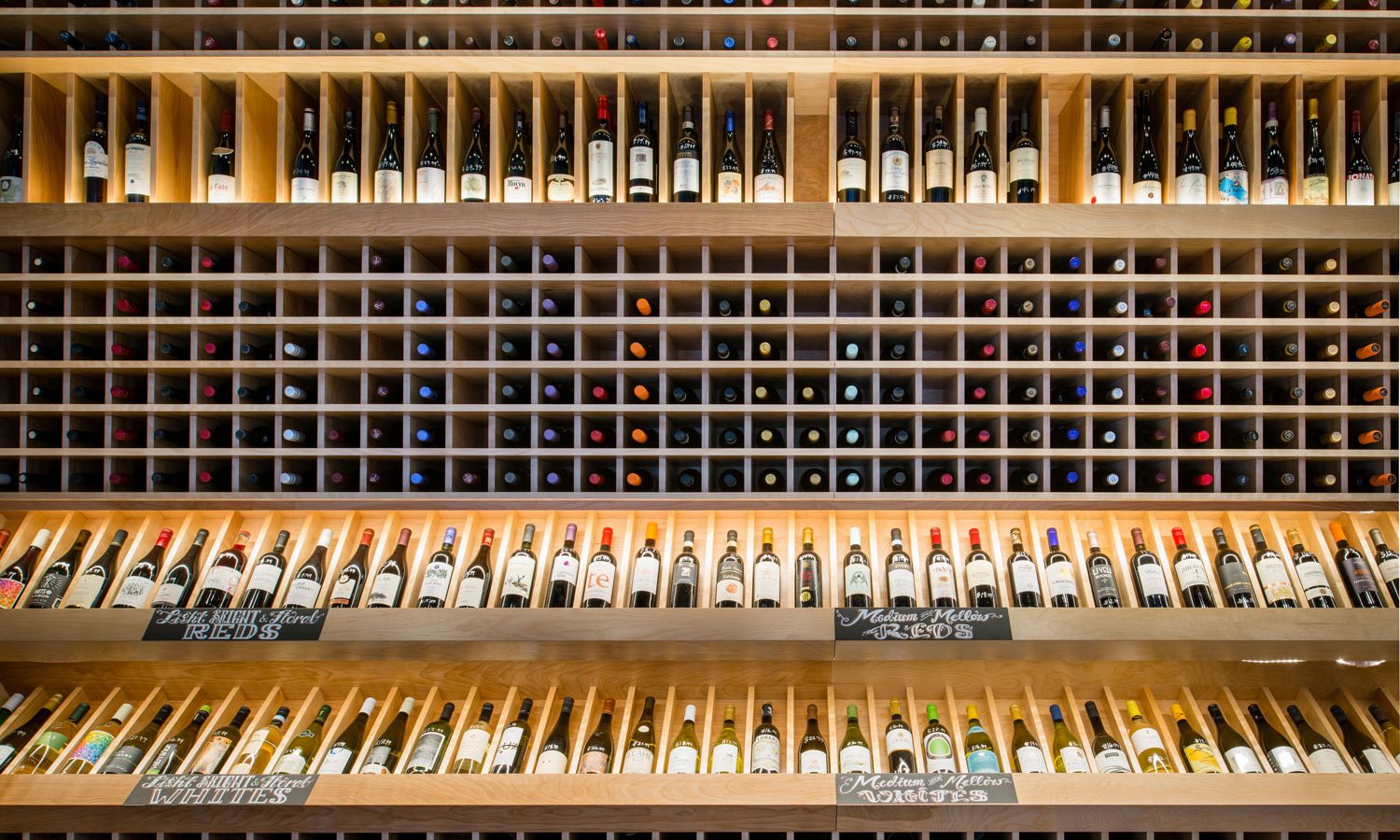
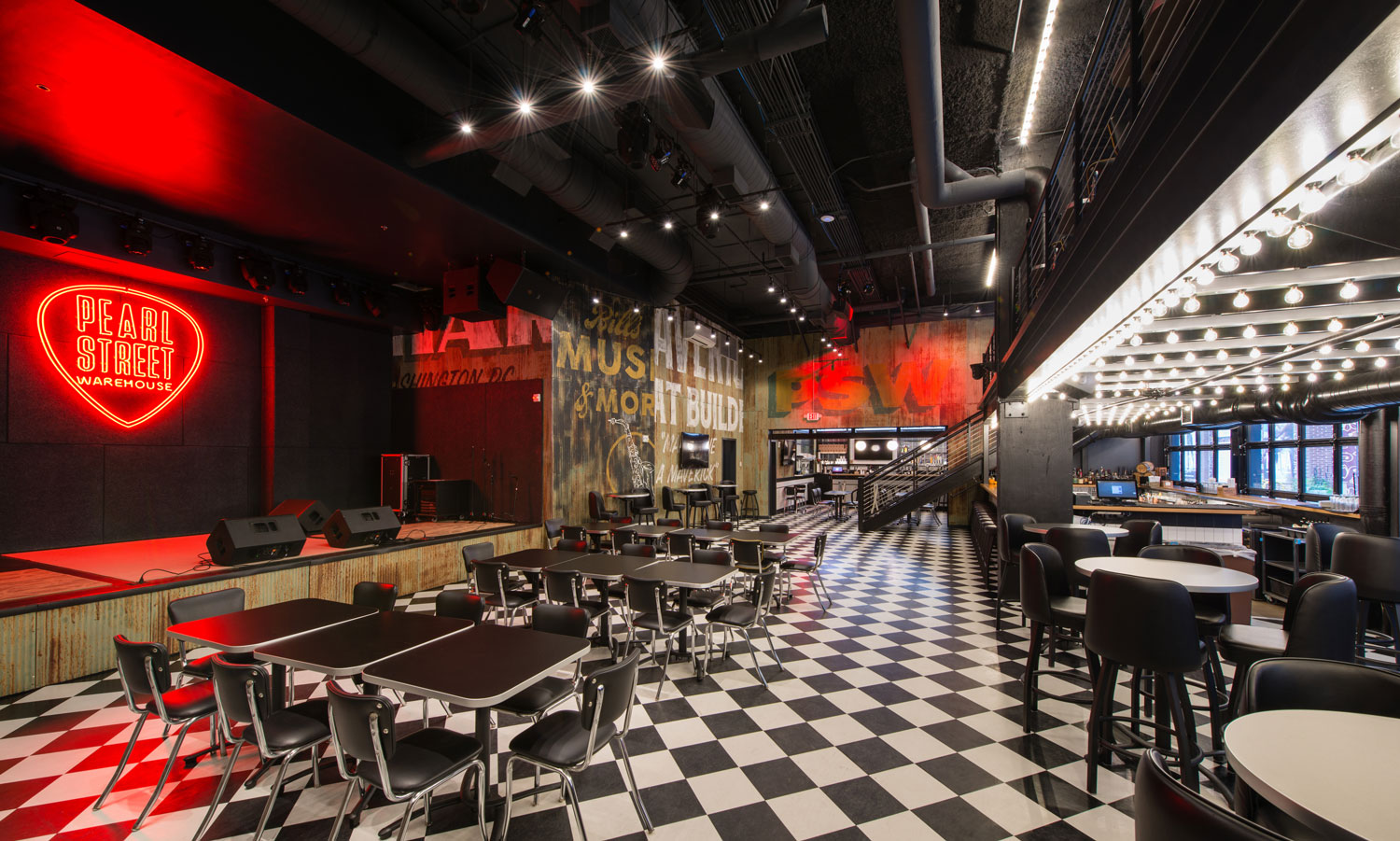
The Wharf: Weekend Worthy Getaway
With the grand opening of The Wharf in October 2017—a transformational redevelopment project on the Southwest Waterfront—the nation’s capital can finally boast a stylish, multifaceted destination on the Potomac River that encompasses restaurants, shops, hotels, entertainment, outdoor recreation, and other amenities, while still being close to the National Mall and its many surrounding attractions.
And Hospitality Construction Services has a strong presence throughout District Wharf, from ongoing projects with Rappahannock Oyster Company—responsible for revitalizing the bay and the program that produces some of the world’s best oysters—to an upcoming tiki bar and distillery. Stop by Cordial Fine Wine and Spirits to shop for small-batch and handcrafted adult beverages, then finish the evening with live music at Pearl Street Warehouse, a venue that features a diner with classic American food and cocktails.
As seen in the Winter/Spring 2019 Issue
Click to Visit Our Advertisers

